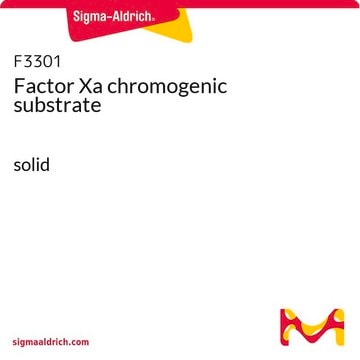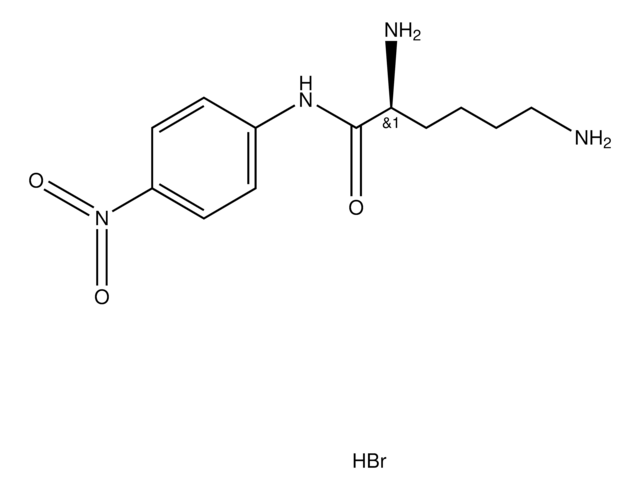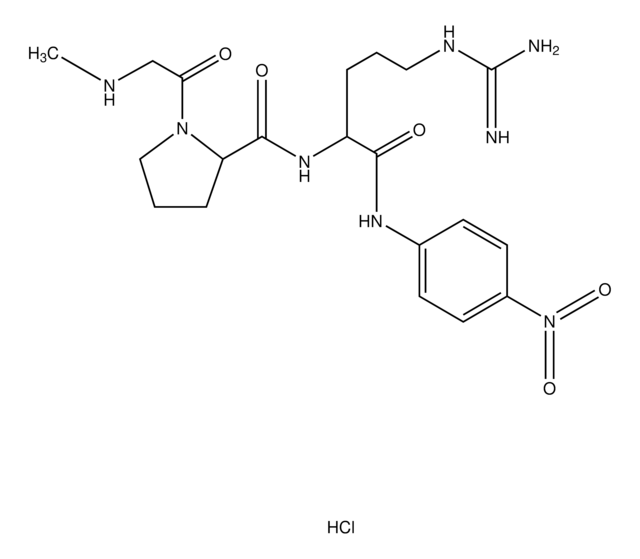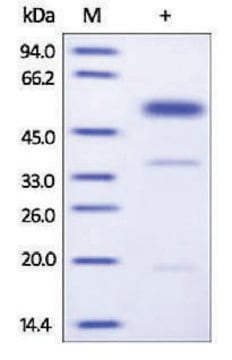V7127
D-Val-Leu-Lys p-nitroanilide dihydrochloride
plasmin substrate, chromogenic, ≥98% (HPLC), powder
Synonym(s):
D-Val-Leu-Lys p-nitroanilide
About This Item
Recommended Products
product name
D-Val-Leu-Lys p-nitroanilide dihydrochloride, plasmin substrate
assay
≥98% (HPLC)
form
powder
solubility
water: 50 mg/mL, clear, light yellow
storage temp.
−20°C
InChI
1S/C23H38N6O5.ClH/c1-14(2)13-19(28-23(32)20(25)15(3)4)22(31)27-18(7-5-6-12-24)21(30)26-16-8-10-17(11-9-16)29(33)34;/h8-11,14-15,18-20H,5-7,12-13,24-25H2,1-4H3,(H,26,30)(H,27,31)(H,28,32);1H
InChI key
ITWYYDDNWFVYSU-UHFFFAOYSA-N
Application
- as substrate to measure the activity of plasminogen activator by a chromogenic assay
- as a p-nitroanilide (pNA) substrate to measure the specific activities of serine protease isoforms in Gloydius intermedius venom
- as a substrate in total plasmin assay using milk/cream samples
signalword
Warning
Hazard Classifications
Acute Tox. 4 Dermal - Acute Tox. 4 Inhalation - Acute Tox. 4 Oral - Eye Irrit. 2 - Repr. 2 - Skin Irrit. 2 - STOT SE 3
target_organs
Respiratory system
Storage Class
11 - Combustible Solids
wgk_germany
WGK 3
ppe
dust mask type N95 (US), Eyeshields, Gloves
Certificates of Analysis (COA)
Search for Certificates of Analysis (COA) by entering the products Lot/Batch Number. Lot and Batch Numbers can be found on a product’s label following the words ‘Lot’ or ‘Batch’.
Already Own This Product?
Find documentation for the products that you have recently purchased in the Document Library.
Customers Also Viewed
Our team of scientists has experience in all areas of research including Life Science, Material Science, Chemical Synthesis, Chromatography, Analytical and many others.
Contact Technical Service
















